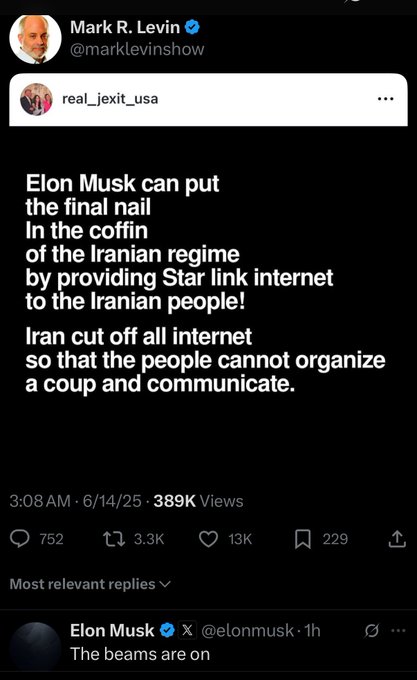As the conflict between Iran and Israel intensifies through ongoing missile exchanges and cyber warfare, global anxiety continues to mount. The prospect of wider international involvement grows, with speculation about which sides global powers like the U.S. and European nations might take. Tensions reached new heights when a top Russian general reportedly urged President Vladimir Putin to mobilize one million troops, stoking fears of a larger confrontation. President Donald Trump, who recently ordered airstrikes on Iran’s nuclear sites, left the G7 summit in Canada early amid escalating regional developments. Meanwhile, Elon Musk has entered the spotlight—albeit more quietly—after activating Starlink internet in Iran, following the government’s decision to impose widespread digital blackouts.
Musk’s move initially drew praise, with supporters hailing the reactivation of internet access for Iran’s 90 million citizens. However, criticism soon followed due to Starlink’s \$110 monthly subscription cost, which is unaffordable for many in Iran, particularly during a crisis. An Ekō petition now urges Musk to waive the fee, citing his past decision to provide free access in war-torn Ukraine. The petition argues that “even those who could afford the \$110 don’t have access to credit cards,” accusing Musk of “opting for optics over substance.” Advocates warn that without full internet access, the Iranian government could more easily suppress dissent and isolate its population, calling Starlink a lifeline in a country facing violence, repression, and digital darkness.






